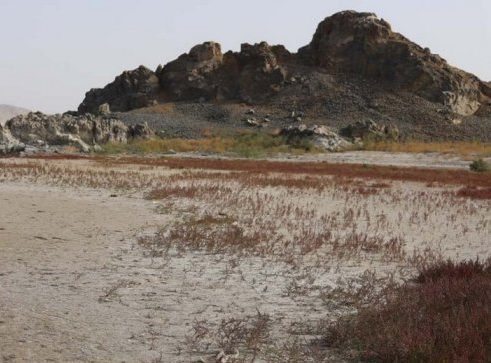WNAM MONITORING: Researchers from the National Institute of Deserts, Flora and Fauna, along with colleagues from the Hazar State Nature Reserve under the Ministry of Environmental Protection of Turkmenistan, conducted a joint expedition to the coastal areas of the Caspian Sea.
The aim of the fieldwork was to identify the primary plant communities emerging on coastal territories exposed by the retreating sea. Equal attention was given to both the Caspian Sea and the Garabogazkol Bay, which, being shallow, reveals land more rapidly. The collection and processing of specialized data is the primary scientific task, which will enable a detailed discussion on the transformation of the natural complexes of the Caspian region during the upcoming scientific conference on the Caspian Sea’s challenges, including sea level changes, their causes, and modeling adaptation strategies.
The forum is scheduled to take place in a hybrid format in Baku in May of next year, under the auspices of the Secretariat of the Regional Framework Convention for the Protection of the Marine Environment of the Caspian Sea (Tehran Convention) and the Caspian Sea Hydrometeorology Coordination Committee (CASPCOM).
The event will feature four thematic sections: Caspian Sea level fluctuations: paleogeographic and climate research; sea level modeling: challenges and solutions; impact of level fluctuations on aquatic and coastal ecosystems, socioeconomic development of coastal areas; adaptation strategies to water level fluctuations.
The organizing committee plans to support in-person participation of researchers from each Caspian littoral state, including key speakers. Committee members will include national representatives of the Tehran Convention and CASPCOM, as well as specialists appointed by national ministries responsible for environmental protection. A review panel, consisting of internationally recognized scientists from various countries, will select up to 40 abstracts (up to 10 per section) for presentation at the conference and subsequent publication in the conference proceedings, in both Russian and English.
Returning to the Turkmen Caspian Sea expedition, the scientists reported a notable presence of salt-tolerant annual plants in the hydromorphic zone. This cardinal shift in the natural profile serves as an example of the reversibility of degradation and desertification processes, as well as the ability of nature to fill vacant niches and transform landscapes. The emerging “terrestrial” ecosystems on the former seabed are of great interest for research and observation as a new type of natural complex.


